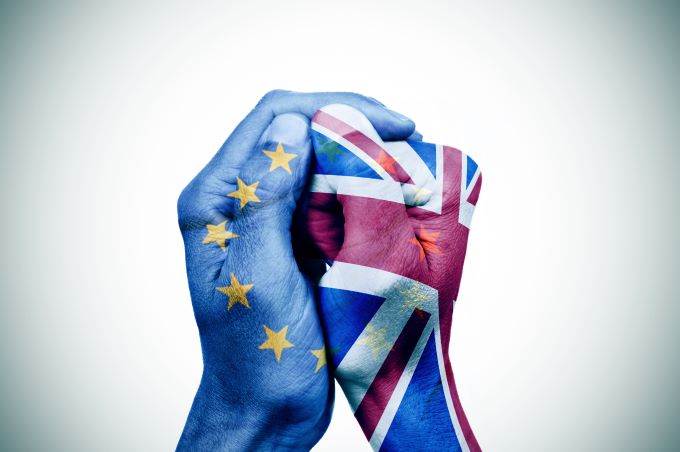Last week, the pound sterling advanced 2.34 percent against the greenback, posting gains for the second consecutive week. Conversely, the currency gained strength against the Euro, advancing 1.21 percent, and breaking a two-week losing streak.
One of the explanations for this performance is that the US dollar has been under pressure as of late, dropping 1.15 percent against a bundle of its main competitors, losing ground for the sixth consecutive week, making July the worst month for the greenback since 2010. The analysts often link the late poor performance of the dollar to the prospects for the US economy compared to the rest of the world, putting into question the idea that the economy would experience a "V-shaped recovery" right after the reopening, as well as the political uncertainty that the country currently faces, now that President Trump commented that he is considering delaying the November presidential elections.
The United States now leads in the number of Covid-19 infections, with 4,764,522 confirmed infections as well as a death toll of 157,901. Around the world, there are 18,026,731 confirmed cases as well as 688,984 total deaths, other heavily affected countries are Brazil, India, and Russia.
 Another factor is the belief that the British economy may not underperform the rest of the European economies. Many believe that the fact that the UK Economic Sentiment Indicator stood at 75.5 in July after being at 65.2 in the previous month is a sign of this. This, added to the fact that many believe that the possibility of agreeing on a post-Brexit trade deal is increasing, which could explain the late enthusiasm for the Pound Sterling, even in light of dwindling risk appetite.
Another factor is the belief that the British economy may not underperform the rest of the European economies. Many believe that the fact that the UK Economic Sentiment Indicator stood at 75.5 in July after being at 65.2 in the previous month is a sign of this. This, added to the fact that many believe that the possibility of agreeing on a post-Brexit trade deal is increasing, which could explain the late enthusiasm for the Pound Sterling, even in light of dwindling risk appetite.
In terms of the economic calendar, the markets got a lot of low-impact data. On Tuesday, the Confederation of British Industry released July's Distributive Trades Survey, which stood at 4 percent (month-to-month), after being -37 percent on the previous month and against the analysts' expectations, who foresaw that the figure would stand at -25 percent. The British Retail Consortium released its Shop Price Index, which is a well-known proxy for inflationary pressures, was at -1.3 percent in June (year-to-year) after being at -1.6 percent on the previous month.
On Tuesday, the Bank of England released several key data about the financial markets. Net lending to individuals increased by 1.8 billion pounds in June (month-to-month), over the analysts' expectations which foresaw a contraction by 0.4 billion and improving significantly from the previous month's figure, which showed a contraction by 3.3 billion pounds. June's Consumer Credit figure showed a contraction of the money that individuals borrowed in the previous month by 0.086 billion pounds, beating the analysts' expectations who foresaw a drop by 2 billion pounds and after falling by 4.542 billion pounds on May. Mortgage approvals increased to 40,000 in June, recovering from the record low of 9,300 of the previous month.
The money supply went up by 1 percent in June (month-to-month) after increasing by 2.1 percent on the previous month and over the analysts' expectations who foresaw a 0.7 percent expansion. The year-to-year figure expanded by 13.1 percent in June, after increasing by 11.9 percent on the previous month.
On Friday, Nationwide's Housing Prices figure was released, which stood at 1.7 percent in July (month-to-month), after going down by 1.6 percent the previous month. The yearly figure stood at 1.5 percent, after being at -0.1 percent on the previous month.
There are currently 303,952 confirmed coronavirus cases in the United Kingdom, as well as a death toll of 46,193. According to a study released by the Office of National Statistics, it's the country that has the worst surge in deaths compared to its European neighbors.
“Excess mortality was geographically widespread throughout the U.K. during the pandemic, whereas it was more geographically localized in most countries of Western Europe,” explained the Office for National Statistics on its report.
Regarding the Brexit negotiations, the UK and the EU are set to hold three negotiating rounds before October 2, right before the next EU summit which will take place in mid-October.
“Negotiating rounds will take place in August and in September unless agreed otherwise between the parties,” stated the UK negotiator David Frost.
If both parts don't agree before the end of the year the UK would need to leave the European Union without a deal.
